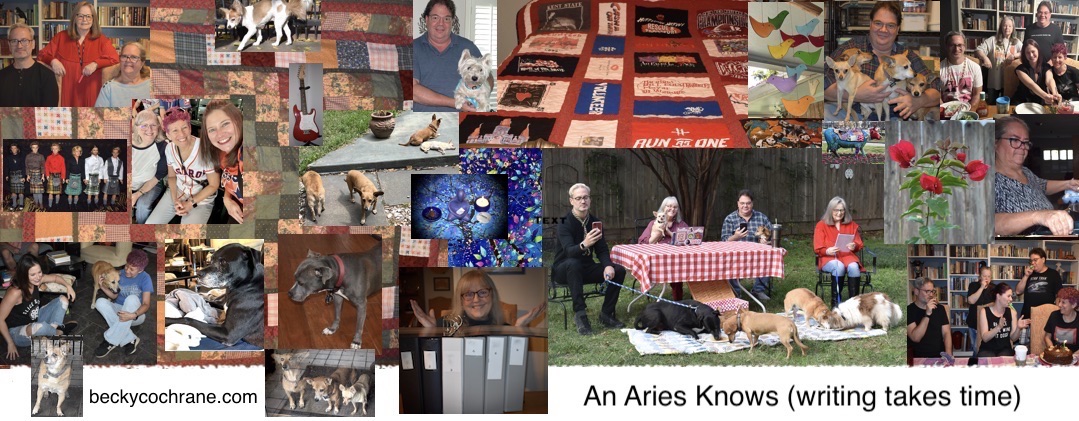In an exchange I shared with Mark L the other day, I was reminded of a web site that I like to visit.
First, if I haven’t mentioned it before, there’s a Flickr group that publishes archival photos related to D Day in Normandy spanning the months June to August 1944. I follow this group and peruse each photo that’s added for possible pictures of my father. I have, in fact, found one photo with a man who is a strong contender to be him, but since the soldiers are most often not named, it’s mere speculation on my part. My search for photos of him is hindered because I know where in Europe he served during World War II, but his movements don’t match up to the documents identifying his company/battalion (I’m not sure about all the military terms). Older relatives are of little help because they maintain a glorified view of his military service that would horrify him if he heard their tales.
In reading In the Bleak Midwinter, a mystery by Julia Spencer-Fleming (thanks, Johnnie!), I was struck by this paragraph in which one of her characters, a war vet, reflects:
He didn’t want to become one of those big-bellied guys down at the American Legion, droning on about their war adventures as if they had forgotten what it was really like. Probably file clerks and car-pool mechanics, anyway. The ones who knew what it was really like hardly ever talked about it, not in the Legion Hall bar and not in front of some committee to erect a monument.
That sums up my memory of my father and other soldiers whenever there were parties or gatherings where they would reminisce. They might talk about their work, but they didn’t talk about their wars. Most often, any overtures they made to commemorate their experiences were to honor the ones who didn’t come home, or to describe the friendships and bonds formed, or even to speak affectionately of their equipment, be that weapons or tanks. (In fact, in the site this post is about, there’s a deeply sentimental history of a plane that was recently saved to be put on display in Normandy.) As an Army brat, I never heard any bragging about war exploits; that would violate a code, at least among my father and his friends.
As I said, I was reminded of all this by a conversation with Mark L, who lives in England, that touched on architecture. Among his photographs, Mark may include buildings that date back many centuries. The States being a comparatively young nation, even our oldest buildings are youngsters, plus in many places we have a tendency to tear down and replace, particularly if buildings are crumbling or damaged. That brings me to the web site I mentioned at the beginning of this post, Sixth of June 1944 (or more truly, 6juin1944). Not only is the site full of anecdotal historical information and photographs, but there is one section in particular that appeals to me. It contains photographs taken during the war of scenes in Normandy, and then offers a current-day photo of the same place–including buildings that could have been scraped and carted away but instead were restored or rebuilt with reverence and attention to detail. What I most appreciate about this is the indomitable spirit of human beings. We fall, we suffer, we experience unspeakable losses. But we go on. Time heals and buffers the images just as surely as it does our spirits. These pictures are for me the embodiment not only of survival, but of hope.
If you’re interested in these before-and-after photos, you can find them here. I’m not able to republish any of them for you because they’re protected.

My grandfather, the American one never ever talked about the war — I didn’t know he was at Pearl Harbor till I found a pic of him in a lei … and I asked his wife ( not my grandmother, but a very nice woman) when he was in Hawaii and she was the one that showed me his photo album. He never ever said a word.
My great uncle, the German side used to take me on rides in the country and he would talk about the war in a limited capacity. He was taken prisoner by the English in North Africa, and since he could speak English he acted as a translator – and he would tell me how nice the English were to him. When we would go into Ktown, which still had American. English and French troops in the city we’d always wave at the American and The English — and scream obscenities at the French. Because really what better way to express your dislike for a people then to have your little grand niece yell bad words in German at them.
And that is what I know about the war from my family.
One thing about that Flickr group–there are plenty of photos of German soldiers who are being held as POWs after the invasion. Their faces are just as vulnerable and full of story as the faces of the Allies. War is utterly heartbreaking to me.
I often wish I got to know your father. And it’s more for these stories he wouldn’t tell than the ones he would. Not that he would ever embarrass you, I’m sure.
No, neverrrrrrr.